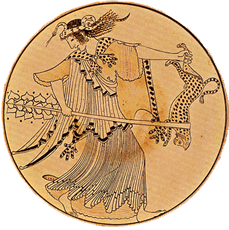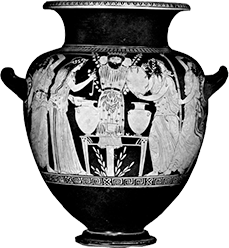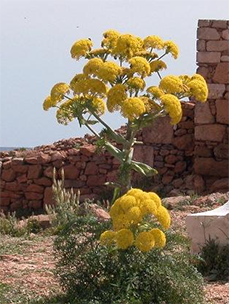Quiz quotations ("quiz-quotes") are brief passages — a few lines — in Greek and from ancient Greek authors, in other words, real Greek. They typically will be assigned for the same day as longer readings ("beta-readings" — one "delta reading" this semester). Thus they form part of the pattern assignments for a given chapter of Athenaze (alpha vocan and grammar, beta reading and quiz-quote, beta vocan and grammar, chapter quiz).
For each of these assigned quiz-quotes, I am asking that you:
- Read the assigned quiz-quote and associated discussion (see below). As with other assignments, be ready to read the quote out loud in class
- Write a translation of it — use translation notes supplied below
- Write down a brief comment: your course-relevant, quote-relevant thoughts about the passage in question
If you do optional outside research. . .
Please do NOT use unvetted, unscholarly sources like Wikipedia. Use instead The Oxford Classical Dictionary (login required), Brill's New Pauly via Brill Online (ditto), or Sources linked to below
Ch16 Quiz-Quote
Ἄνδρα μοι ἔννεπε, Μοῦσα, πολύτροπον, ὃς μάλα πολλὰ
πλάγχθη, ἐπεὶ Τροίης ἱερὸν πτολίεθρον ἔπερσε.
Homer Odyssey book 1 lines 1-2. Try translating using vocabulary below:
ἔννεπε. (verb — note form!), from ἐννέπω, "tell of/about, " "sing of/about" + direct object in accusative.
πολύτροπον. πολύτροπος (masc. & fem.), πολύτροπον (neut.). 2nd decl. adjective, "of many ways, "clever, resourceful" (case? modifies?) .
ὅς = "who." (masc. nominative sing. relative pronoun)
μάλα πολλά. literally "a great many (things)"; here = adverb "very muchl" (with πλάγχθη).
πλάγχθη. "wandered" (3rd sing. simple past-tense passive voice of πλάζω, "I beat upon," "I force to wander about").
Τροίης, Ionic genitive, from Τροία, Τροίας, ἡ.
ἱερόν. ἱερός, ἱερά, ἱερόν. "Holy" (modifies?).
πτολίεθρον, τό. "City," "citadel." (Related to π(τ)όλις, "city.")
ἔπερσε. "sacked, destroyed" (3rd sing. simple past of πέρθω)
Ch17 Quiz-Quote
εἶναι δὲ γλυκὺν ὧδε φίλοις, ἐχθροῖσι δὲ πικρόν
Solon fragment 13 line 5. This quote comes from the poetry of Solon (fr. 13.5), Athenian statesman and archon in 594/3 BCE. Having just prayed to the Muses for fame and fortune won honestly, Solon says, ... what??
For Solon, see the CIV reading for Athenaze CH8. In praying this way, he is echoing what turns out to be the chief moral dictum of ancient Greek popular morality.
Grammar:
εἶναι. infinitive "to be." Solon is praying "to be" something.
γλυκύν. "sweet," "pleasant" (cf. "glycerine"). Accusative adjective — acc. because it agrees with the understood accusative subject of the infinitive, μέ ("me"). (Infinitives often — not always — have their subjects in the accusative).
ὧδε. "thus" (similar to οὗτως) — here translate "just so," "likewise," "and with that."
ἐχθροῖσι. poetic masculine dative plural of ἐχθρός, "enemy."
πικρόν. "bitter," accusative adjective — accusative for same reason asγλυκύν.
Ch 18 Quiz Quote

. . . ἀμφὶ δὲ νάρθηκας ὑβριστὰς
ὁσιοῦσθ’· αὐτίκα γᾶ πᾶσα χορεύσει,
Βρόμιος ὅστις ἄγηι θιάσους,
εἰς ὄρος εἰς ὄρος.
Euripides Bacchae 113-116 (translation notes below)
What do you think this bit of choral song is all about?
Euripides' tragic play the Bacchae (first produced 405 BCE) tells a story of hubris: the "wanton outrage" or "violence" of Pentheus, king of Thebes, who seeks to stamp out the worship of Dionysus in his kingdom. He views Dionysus as running a cult freeing women to commit hubris, "outrage" detrimental to patriarchal power. In the end, Dionysus induces the king to dress up as a bacchant, a female worshiper of Dionysus, to spy on his mother and her sisters as they worship the god. They mistake the king for an animal and, in their frenzy, tear him limb from limb.
This passage is from the parodos, the song that the chorus sings and dances (khoros, "dance") as they make their entrance on stage. The chorus members in this case are playing bacchants from Asia Minor, what is now Turkey. Bacchants, in Greek, bakkhai, were women who worshiped the god Bakkhos, better known Dionysus; their male counterparts were called bakkhoi. They got their name from the chant that they recited: iō bakkhe/bakkhē, "Hey, Bacchus/Baccha!"
(The mythological version of bakkhai could also be called maenads, "women in the throes of madness." See the image above.)

Dionysus was the god of wine, revelry, release from inhibition, and . . . dramatic performance. He was the god of erasure of difference, of merging of personalities, of becoming other than yourself. He was celebrated with drinking, with parades, with costumes and masks. In myth, he is also worshiped with snake handling, the ripping apart of animals (sparagmos), and the eating of raw flesh (ōmophagia).
Masking and impersonation were key elements of Dionysian worship, so much so that the transformative power of the mask could itself be worshiped as the embodiment of the god, as in the dinos painter's maenad stamnos. Boys being initiated into the mysteries of Dionysus would dress as women to experience the gender fluidity of the god.
Translation Notes
ἀμφί + acc. "Around."
νάρθηξ, νάρθηκος, ὁ. Giant fennel, ferula communis. The stalk of the giant fennel (in translation, call it "fennel") served as the shaft of the ivy-topped thyrsus, the "wand" that Dionysus and his followers carried with them (see image above).

ὑβρίστης, ὑβρίστου, ὁ. The noun refers to anyone or anything (in the masculine gender) who/that commits hubris, "outrage." Here, the noun is being used as an adjective — what translation makes sense to you? Why?
ὁσιοῦσθ’, elided form of ὁσιοῦσθε, present middle from the omicron contract verb ὁσιόω, "make holy," in middle, "keep oneself pure."
αὐτίκα. "Straight away," "immediately."
γᾶ. Doric form of γῆ, "earth."
χορεύω, χορεύσω, ἐχόρευσα. "Dance." χορεύσω, the second principal part, indicates the future system with its sigmatic future stem, χορεύ-σ-. The endings are regular present endings, but the time-frame is future.
Βρόμιος. Bromios was one of the epithets, the by-names, of the god Dionysus. It's usually taken to mean "roarer." It refers to the god in his avatar of a bull.
ὅστις. ὅς "who" + τις "someone" = "whoever." What case/number/gender?
ἄγηι = 3rd-person active present subjunctive mood of ἄγω. The use of the subjunctive makes it more hypothetical, but it's not a distinction we can easily translate here: "whoever leads." ("Whoever" should/would lead" would be more suitable for an optative.)
θιάσους. From θιάσος, θιάσου, ὁ. "Bacchic revel, rout," "sacred band."
Quiz-Quotes, Athenaze Chs 19-20
From Herodotus History of the Persian Wars 2.1. . .
Below find links to PDF text with detailed commentary in footnotes. PLEASE MAKE GOOD USE OF NOTES! It may also help to use the Perseus Word Study (= form lookup) Tool and the Lexicon.
For CH19, LINES 1-3 of Greek on PDF document:
Φιλέλλην δὲ γενόμενος ὁ Ἄμασις ἄλλα τε ἐς Ἑλλήνων μετεξετέρους ἀπεδέξατο καὶ δὴ καὶ τοῖσι ἀπικνεομένοισι ἐς Αἴγυπτον ἔδωκε Ναύκρατιν πόλιν ἐνοικῆσαι.
For CH20, LINES 4-6 of Greek on PDF document:
τοῖσι δὲ μὴ βουλομένοισι αὐτῶν ἐνοικέειν, αὐτόσε δὲ ναυτιλλομένοισι ἔδωκε χώρους ἐνιδρύσασθαι βωμοὺς καὶ τεμένεα θεοῖσι.
Check out this YouTube animation, a 3D animation of Naukratis:
